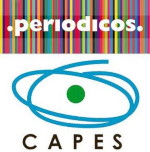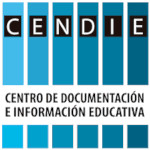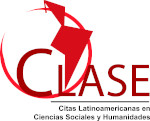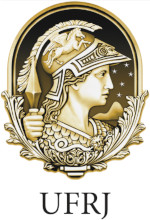Experiência e significado de mentoria: da abordagem socrática à nova ciência da aprendizagem
DOI:
https://doi.org/10.26849/bts.v46i2.828Palavras-chave:
Divisão social do conhecimento, Práxis e conhecimento armazenado, Mentores e aprendizagem, Pedagogia da educação profissional, Pedagogia das profissõesResumo
A mentoria como práxis desejada nas organizações de ensino chegou à frente das discussões sobre aprendizagem e ensino nas últimas décadas. A mentoria como conceito em teoria educacional na tradição europeia está ligada ao que foi chamado de Método Socrático. O mestre-professor é uma pessoa de experiência com quem os jovens podem conversar. Perguntas e reflexões devem desenvolver a curiosidade e o engajamento dos estudantes na busca de novos conhecimentos. Esse entendimento de conhecimento e aprendizagem corresponde a um modelo de aprendizagem em que a atividade prática é a base para aprender. Contradições entre perspectivas sobre formas de aprender são uma questão central em nossa época. Neste artigo, discutese essa problemática no contexto do trabalho científico de John Dewey, Célestin Freinet, Paulo Freire, Maria Montessori e Lev Vygotsky.
Downloads
Referências
ADAMSON, Glenn. Thinking through craft. Oxford: Berg Publishers, 2007.
ALBÆK, Karsten et al. Better late than never?: how late completion affects the early careers of dropouts. IZA Discussion Paper, [s. l.], n. 12560, p. 1-39, Aug. 2019.
BAKKEN, Anders; ELSTAD, Jon Ivar. For store forventninger: kunnskapsløftet og ulikhetene i grunnskolekarakterer. Oslo: Norsk institutt for forskning om oppvekst, 2012. (NOVA Rapport, 7/12).
BARATO, Jarbas Novelino. Saber do trabalho, aprendizagem situada e ensino técnico. Boletim Técnico do Senac, Rio de Janeiro, v. 37, n. 3, p. 19-29, 2011.
BARATO, Jarbas Novelino. Trabajo, conocimiento y formación profesional. Montevideo: OIT/Cinterfor, 2016.
BEFRING, Edvard. De pedagogiske kvalitetene: løfterike muligheter for barn og unge. Oslo: Universitetsforlaget, 2018.
BIRD, Alexander. Thomas Kuhn. Chesham: Acumen, 2000.
BOURDIEU, Pierre; PASSERON, Jean-Claude. Les étudiants et leurs études. Paris: Walter de Gruyter, 1964.
CHIASSON, Dan. The man who built the Bauhaus. The New Yorker, New York, 29 Apr. 2019. Disponível em: https://www.newyorker.com/magazine/2019/04/29/theman-who-built-the-bauhaus. Acesso em: 22 jul. 2020.
COOPER, Linda. Conceptual and practical knowledge in workers’ education. In: VET CONFERENCE, 2018, Zürich. Annals […]. Zurich, [s. n.], 2018.
DEWEY, John; DEWEY, Evelyn. Schools of tomorrow. New York: E. P. Dutton & CO., 1962.
EIKELAND, Olav. The ways of Aristotle: Aristotelian phronesis, Aristotelian philosophy of dialogue, and action research. Bern: Peter Lang, 2008.
ENGESTRØM, Y. Developing work as educational research: looking back ten years into the zone of proximal development. Nordisk Pedagogikk, [s. l.], v. 16, n. 3, 1996.
FREIRE, Ana Maria Araújo; VITTORIA, Paolo. Dialogue on Paulo Freire. Interamerican Journal of Education for Democracy, [s. l.], v. 1, n. 1, p. 96-117, Sept. 2007.
FREIRE, Paulo. Pedagogy of the heart. New York: Continuum, 1998.
GOTTLIEB, Susanne. How Denmark try to solve the problem of dropout in vocational education. New Journal, [Nagoya], n. 17, p. 48-57, 2018.
GRIGNON, Claude. L’ordre des choses: les fonctions sociales de l’enseignement technique. Paris: Edition de Minuit, 1971.
JOHNSON, Mark. The meaning of the body: aesthetics of human understanding. Chicago: University of Chicago Press, 2008.
KOSSLYN, Stephen; NELSON, Ben. Building the intentional university. Massachusetts: The Mit Press 2017.
KVALE, Steinar. En pædagogisk rehabilitering af mesterlæren?. Dansk pædagogisk tidsskrift, [s. l.], v. 41, n. 1, 1993.
LIVINGSTONE, David W. (ed.). Critical pedagogy and cultural power. [S. l.: s. n.], 1987.
MAYO, Peter. Praxis. In: Peters Michael A. (ed.). Encyclopedia of educational philosophy and theory. Singapore: Springer, 2016.
MJELDE, Liv. Apprenticeship: from practice to theory and back again. Joensuu: University of Joensuu Press, 1993.
MJELDE, Liv. From hand to mind. In: LIVINGSTONE, David W. (ed.). Critical pedagogy and cultural power. [S. l.: s. n.], 1987. p. 205-221.
MJELDE, Liv. Labour and learning: the apprenticeship program in Norway. Interchange, [s. l.], v. 21, n. 4, p. 34-48, 1990.
MJELDE, Liv. Learning through praxis and cooperation: Lev Vygotsky and vocational pedagogy. In: MARHUENDA-FLUIXA, Fernando (ed.). Vocational education beyond skill formation. Bern: Peter Lang, 2017.
MJELDE, Liv. The magical properties of workshop learning. Bern: Peter Lang, 2006.
MJELDE, Liv. Mentoring experience and meaning. In: COKKINOS, Dennis V. et al. (ed.). The capital of knowledge. Athens: Society for the Propagation of Useful Books, 2020.
MJELDE, Liv. Mentoring our knowledge for the future. Athens: European Association of Professor Emeriti, 2016. Keynote speech.
MJELDE, Liv. Mentoring vocational self-reliance: lessons from Uganda. In: MOLZBERGER, Gabriele; WAHLE, Manfred (ed.). Shaping the futures of (vocational) education and work. Bern: Peter Lang, 2015. p. 101-124.
MJELDE Liv. The promise of alternative pedagogies: the case of workshop learning. In: WATSON, K. et al. (ed.). Educational dilemmas: debate and diversity. London: Cassell. 1997. p. 331-340.
MJELDE, Liv. Las propiedades magicas da la formacion en el taller. Montevideo: OIT/Cinterfor, 2015a.
MORIN, Edgar. On complexity. New Jersey: Hampton Press, 2008.
NORWAY. Ministry Knowledge. Kompetansereformen- Lære hele livet. Oslo: Ministry of Knowledge, 2020. (Stortingsmelding, 14).
NORWAY. Ministry of Knowledge. På rett vei. Kvalitet og mangfold i fellesskolen. Oslo: Ministry of Knowledge, [2013?]. (Norwegian Official Report, 20).
PAVLOPOULOS, Prokopios. The Roots of learning: the mentor’s role. In: COKKINOS, Dennis V. (ed.). The capital of knowledge. Athens: Society for the Propagation of Useful Books, 2020.
PORTES, Pedro. R.; SPENCER, Salas. Vygotsky in 21st society: advances in cultural historical theory and praxis with non-dominant communities. New York: Peter Lang, 2011.
ROSE, Mike. The mind at work: valuing the intelligence of the American worker. New York: Penguin, 2014.
SMITH, Dorothy E. Institutional ethnography: a sociology for people. Lanham: AltaMira Press, 2005.
SOHN-RETHEL, Alfred. Intellectual and manual labour: a critique of epistemology. London: Macmillan, 1978.
STROBELT, Michael. Kritisk pedagogikk - et svar på dagens kunstpedagogiske utfordringer? Journal of Research in Arts and Sports Education, Oslo, v. 2, n. 2, p. 4-18, 2018.
VYGOTSKY, Lev. Mind in society: the development of higher psychological processes. Cambridge: Harvard University Press, 1978.
Downloads
Publicado
Como Citar
Edição
Seção
Licença
Compromisso de Disponibilização dos Trabalhos em Licença Creative Commons
O Boletim Técnico do Senac será disponibilizado por meio da licença BY NC, de forma gratuita e sem fins comerciais.
Em vista disso, ao submeter seus trabalhos para avaliação, os autores se comprometem a providenciarem a disponibilização de seus trabalhos pela licença Creative Commons BY NC junto ao website <https://br.creativecommons.org>, dispensando, assim, a necessidade da assinatura de qualquer documento ou contrato com o Senac para regular a disponibilização de seus trabalhos no Boletim Técnico do Senac.
O(s) autor(es)declaram, ainda, que reconhecem o Boletim Técnico do Senac como periódico eletrônico de acesso livre, cujas Políticas e Diretrizes para Autores estão à disposição para conhecimento em seu sítio oficial na web, a saber – www.bts.senac.br – e que as mesmas podem ser modificadas a qualquer tempo, ficando imediatamente qualquer nova condição publicada on-line.




















